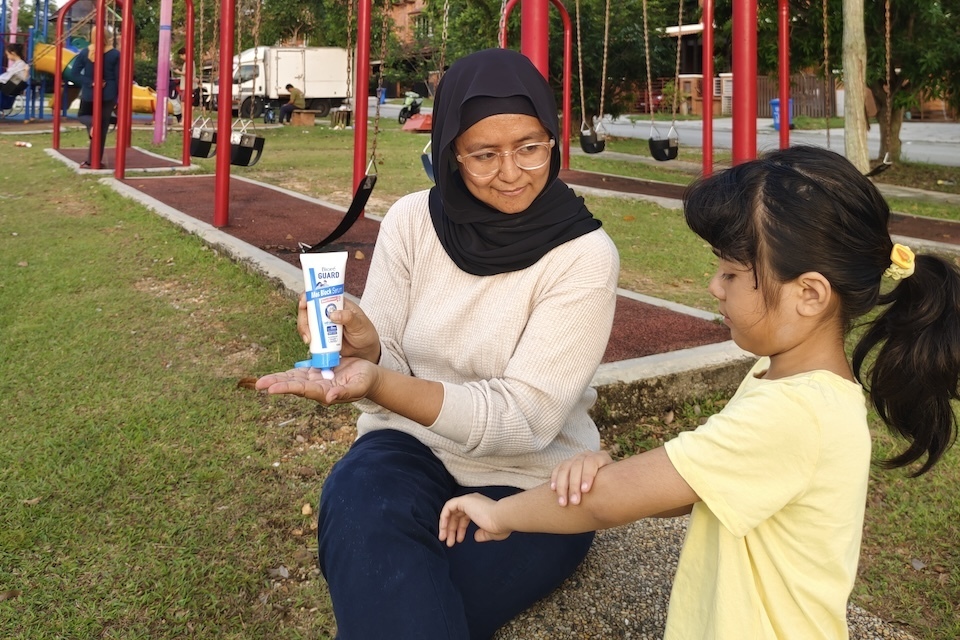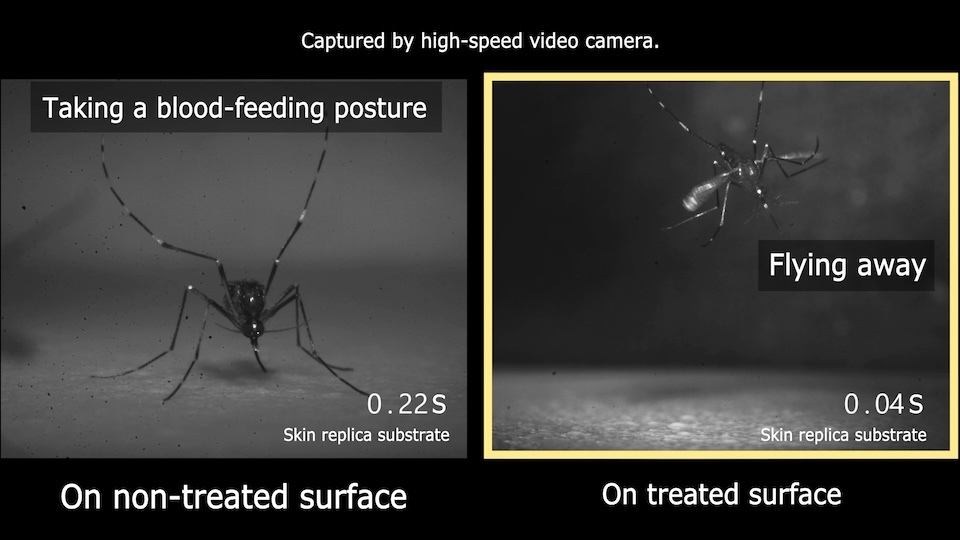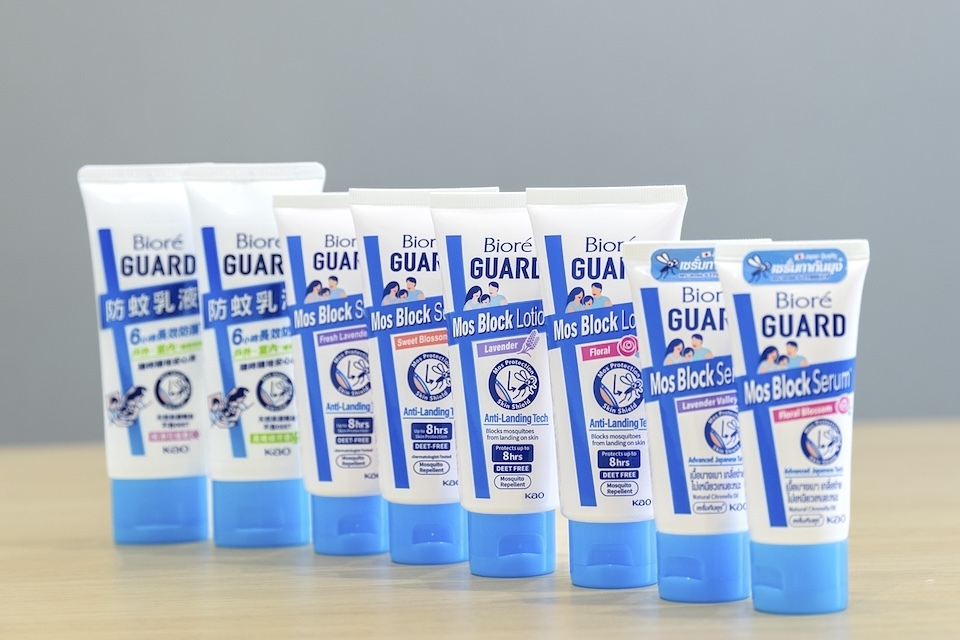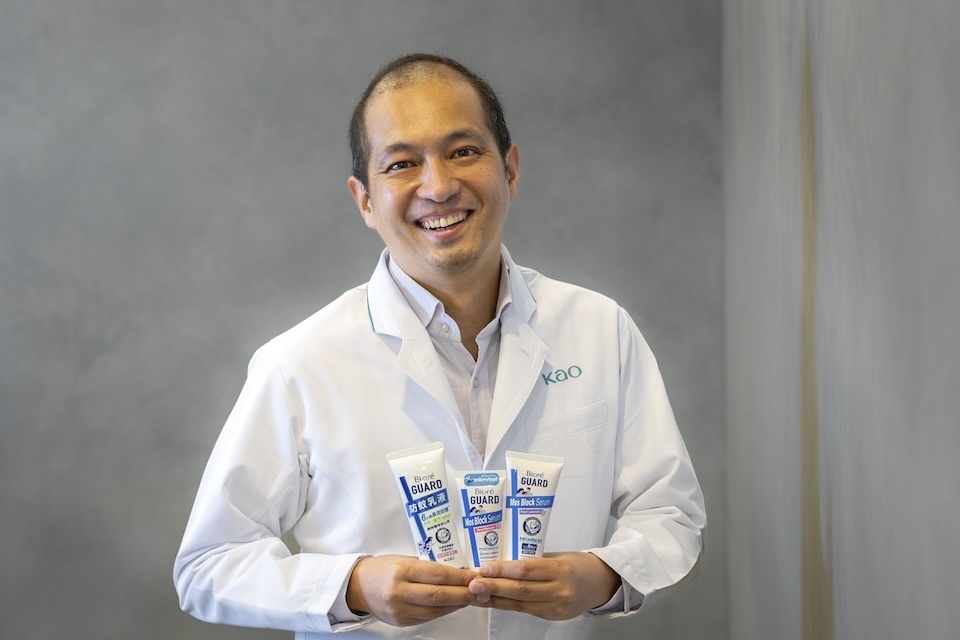April 25 marks World Malaria Day. To help combat this deadly infectious disease, a Japanese company has developed a completely new type of cream-based mosquito repellent that is gaining attention. Based on the groundbreaking concept of “pulling on mosquitoes’ legs,” the gentle, skin-friendly repellent—safe even for children—helps promote public health in everyday life.

With its pleasant fragrance and feel, Kao Corporation’s new mosquito repellent cream, created to encourage everyday use and protection, is even popular among children.
Malaria, a mosquito-borne infectious disease, remains a major global health challenge. In 2023, there were estimated to be 200 million infections and 600,000 deaths across 83 countries. A potential game-changer in the fight against malaria is an innovative mosquito repellent cream developed by Kao Corporation, a leading Japanese consumer goods manufacturer. What sets that product apart is its unique approach: it prevents mosquitoes from landing on people’s skin in the first place.
The development of the product was driven by the rise of dengue fever, another mosquito-borne disease similar to malaria. In recent years, dengue cases have been increasing worldwide. However, conventional insect repellents have failed to provide effective prevention as daily-use products due to their strong odors, sticky textures, or parental concerns over exposing children to chemical ingredients.
“As a consumer goods manufacturer, we aimed to create a mosquito repellent that people could effortlessly incorporate into their daily routines as a way of habit,” explained NAKAGAWA Takao, a mosquito researcher and director of Human Health Care Products Research within the company’s Research & Development Division.
The research team—initially drawing inspiration from the development of sunscreens designed to repel dust and PM2.5 (fine inhalable particles)—wondered if a similar approach could be applied to keep mosquitoes from landing on people’s skin by causing their legs to “slip.” Through extensive testing with various materials, they discovered that low-viscosity silicone oil—commonly used in cosmetics—applied to surfaces caused mosquitoes to instinctively flee. The reason lies in the special structure of their legs, which are covered in tiny, uneven scales that allow them to stay afloat on water surfaces. Hydrophobic liquids such as silicone oil easily wet and spread to these scales, making mosquitoes feel as if their legs are being dragged down and consequently triggering a flight response from the perceived danger.

A mosquito that lands on a surface treated with low-viscosity silicone oil (right) panics upon contact and flees in just 0.04 seconds.
Building on that innovative idea and leveraging technologies developed for its existing business, Kao first launched its gentle-on-skin mosquito repellent cream in Thailand in June 2022. It has since expanded to Singapore, Malaysia, Hong Kong, and Taiwan, with plans for further rollout. The company has tailored the cream’s texture, scent, and color for each country and region. To suit local preferences, the company experimented with different formulations on consumers in each place, bringing only the most favored versions to market. Their approach has resulted in a product praised for being pleasant to use, receiving positive feedback and firsthand reports from parents saying that children who once resisted conventional insect repellents are now eager to have the cream applied.
At the heart of Kao’s vision is the idea of incorporating infection protection into people’s daily lives, much like applying sunscreen or moisturizer. As part of this effort, the company launched the GUARD OUR FUTURE project, which raises awareness about effective mosquito protection strategies and their importance in collaboration with businesses, schools, and local communities, particularly in Southeast Asia.
Work is now underway to apply the new mosquito repellent cream to malaria prevention. Although malaria and dengue fever are transmitted by different mosquito species, both share the same leg structure, suggesting that the cream could be similarly effective. To explore its potential, Kao has partnered with research institutions in Kenya as well as Japanese researchers to begin field tests in Africa, where malaria remains a serious threat. Looking ahead, the company aims to gain international certification and expand its use on a larger scale.

Kao’s mosquito repellent cream, Bioré Guard Mos Block Serum, is designed to be easily accessible, with packaging sizes adjusted to match the price range of similar products in each country and region.

NAKAGAWA Takao, director of Kao’s Human Health Care Products Research within the company’s Research and Development Division. Driven by a fervent desire to contribute to society by saving lives, he has dedicated many of his professional years to mosquito research.
Nakagawa said, “To the fact that people can lose their lives simply because of mosquito bites, I want to make a difference with this innovative technology. To gain more partners in our effort, we first need to conduct rigorous scientific validation and widely demonstrate the cream’s effectiveness.”
As mosquitoes remain by far the deadliest creatures to humans worldwide, the hope is that the new mosquito repellent cream will become the breakthrough that leads to a future where human beings can be free of such a concern and coexist with mosquitoes peacefully.


